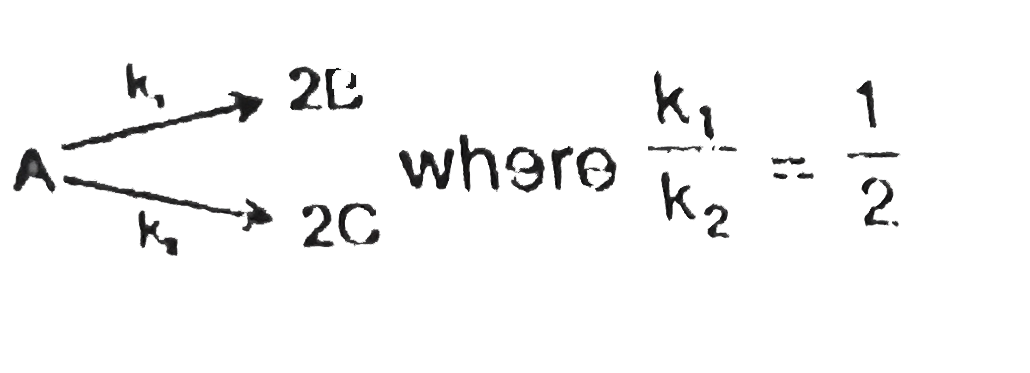For a hypotherical elementary reaction  where k1k2=12
where k1k2=12
Initailly only 2 moles of A are present.
The sum of mole of (B) are ( C) at end of reaction is :
2
3
1
4
The correct Answer is:A
NA
Topper's Solved these Questions
Similar Questions
For a hypotherical elementary reaction
 where k1k2=12
where k1k2=12
Initailly only 2 moles of A are present.
The total number of moles A,B and C at the end of 50% reaction are :
View SolutionFor a hypotherical elementary reaction
 where k1k2=12
where k1k2=12
Initailly only 2 moles of A are present.
Number of moles of B are , if reactions gets 50 % completed :
View Solution
Knowledge Check
In the reaction A+B⇔C+D, 4 moles of A
react with 4 moles of B and form 2 moles each of C and D. The value of Ke for the reaction isA2B3C1D1.56
Rate law for the elementary reaction 2AB→k1A2+B2 will be:
View SolutionFor an elementary reaction. A + 2B → C if volume of the vessel is reduced to 13 of its original volume the rate of the reaction will
View SolutionFor the reaction A+3B⇔2C+D initial mole of A is twice that of B . If at equilibrium moles of B and C are equal , then percent of B reacted is
View SolutionFor the reaction A(g)+3B(g)⇔2C(g)at 27∘C, 2 moles of A, 4 moles of B and 6 moles of C are present in 2 litre vessel. If Kc for the reaction is 1.2, the reaction will proceed in :
View SolutionFor the reaction A(g)+3B(g)⇔2C(g)at 27∘C, 2 moles of A, 4 moles of B and 6 moles of C are present in 2 litre vessel. If Kc for the reaction is 1.2, the reaction will proceed in :
View Solution14 moles of A and 20 moles of B, 8 moles of C is formed in the following reaction 3A+4B→2C then.
View SolutionIn an elementary reaction A+2B→products, the molecularity of the reaction is:
View Solution
